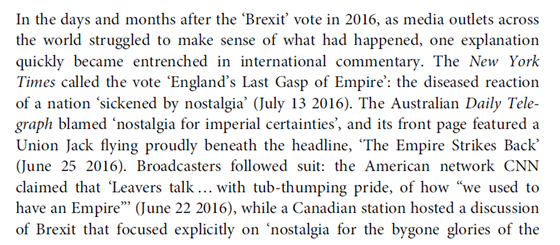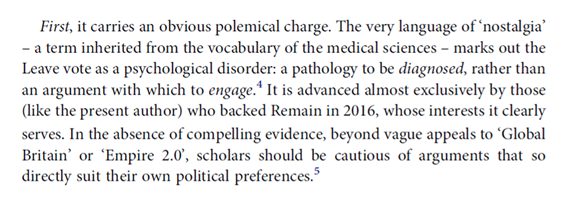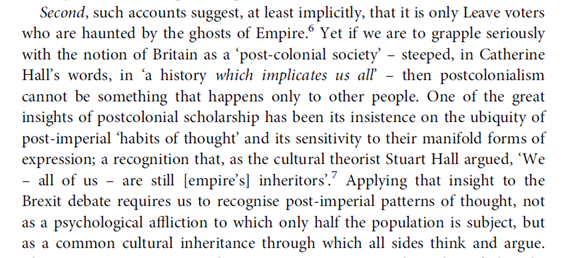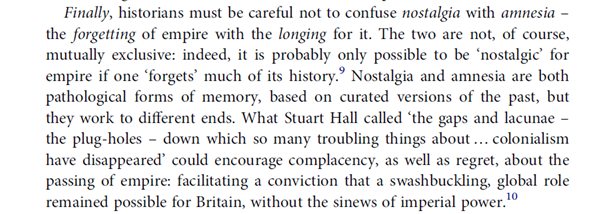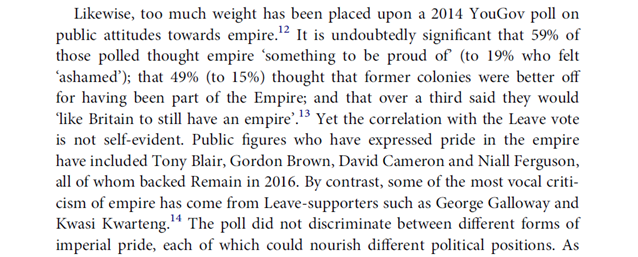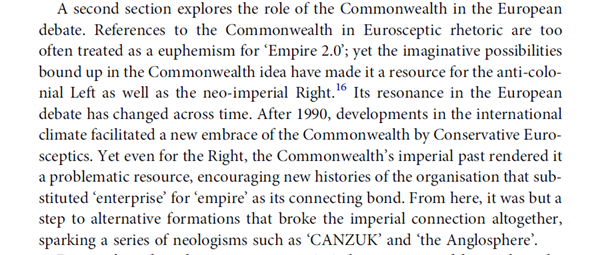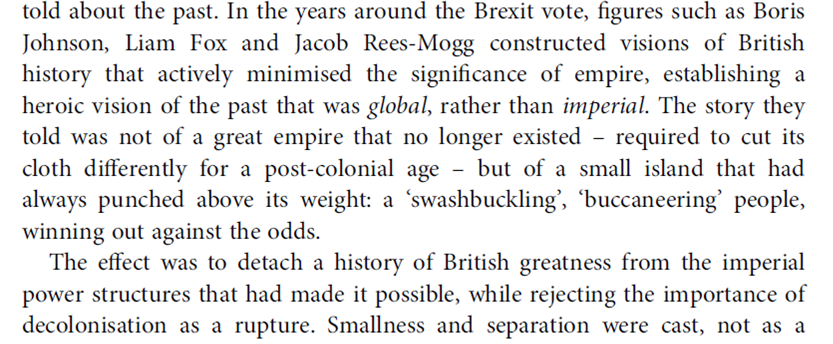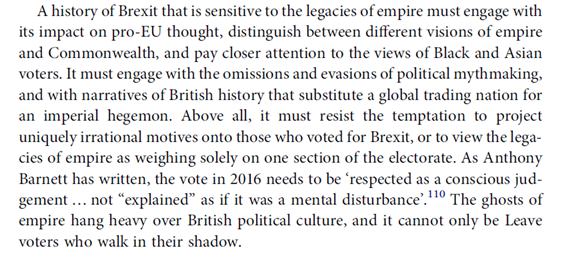Was Brexit a product of "imperial nostalgia"? In a new article - currently on free access in the Journal of Imperial and Commonwealth History - I argue that it was not. Here's a summary of what it does (and doesn't) argue. [THREAD] https://www.tandfonline.com/doi/full/10.1080/03086534.2020.1848403
1. Britain's European debate has always been closely interwoven with the histories of empire. Membership raised hard questions about Britain's place in the world, its "natural" markets/allies, & its relations with its former colonies, all of which were soaked in the imperial past
2. Since 2016, it has become common to argue that "imperial nostalgia" drove the Leave vote. You'll find this argument in the British and international press and in a lot of academic commentary. But it obscures more than it reveals about the relationship between Brexit & Empire.
3. First problem: the very language of "nostalgia" treats the Leave vote as a psychological disorder, lifting it beyond the category of rational analysis. Academics like me, who backed Remain, should be wary of framing opposing arguments in such obviously loaded terms.
4. Second, we should not assume that only Leave voters are haunted by the ghosts of empire. Pro-European thought has its own imperial history, loading membership with aspirations for global power and leadership that were always likely to be disappointed.
5. Third, we should be careful not to conflate enthusiasm for the Commonwealth with nostalgia for "Empire". To take an obvious example, Black and Asian Britons often feel very strong links with the Commonwealth. They are not, as a rule, "nostalgic" for "Empire".
6. Finally, we should not confuse "nostalgia" with "amnesia". Popular memory in Britain seems more inclined to forget the empire than to pine for it. Britain is remembered as "standing alone" in 1940, & decolonisation is rarely treated as a significant rupture in British history.
7. In short, empire has loomed both too large & too small in Brexit commentary. Terms like "nostalgia" have become a placeholder for any problematic relationship with the imperial past, acting as a totalising explanation for one half of the public & an irrelevance for the other.
8. In response, the article tries to open up new ways of thinking about the relationship between Brexit & Empire. It also warns against simplistic readings of polling data or terms like "Empire 2.0" - a term coined by sceptical civil servants, not by Brexit-supporting ministers.
9. The article has four main lines of argument. The first shows how imperial modes of thought could shape the views of supporters, as well as opponents, of European integration, loading membership with expectations of British "imperium" that fuelled resentment later on.
10. A second part explores the uses of the Commonwealth in the European debate. The Commonwealth has served as an imaginative resource for both supporters and opponents of European integration, and its resonance has changed radically in the period since 1990.
11. Part three focuses on the European debate among Black and Asian voters - a cohort that disrupts many conventional assumptions about the Brexit debate, as well as about the role of the Commonwealth in British political thought.
12. A final section centres on "imperial amnesia", and its role in histories of "Global Britain". Such accounts cast Britain, not as a great empire that has lost its power, but as a small country with a positive mindset, that consistently punches above its weight.
13. Britain's former imperial might plays remarkably little role in the writings of Jacob Rees-Mogg, Boris Johnson &co. Instead, smallness and separation are cast, not as a reduction in power that required new policy choices, but as the historic conditions for national greatness.
14. To sum up: the article does not seek to play down the role of empire in the Brexit debate. But it challenges the emphasis on "imperial nostalgia" & Leave voters, by acknowledging the legacies of empire "as a common cultural inheritance through which *all* sides think & argue"
15. If you'd like to read more, the full article is on free-access here. Thanks to the editors of the journal, the two anonymous referees and all those with whom I've discussed these ideas over recent years. [ENDS] https://www.tandfonline.com/doi/full/10.1080/03086534.2020.1848403

 Read on Twitter
Read on Twitter